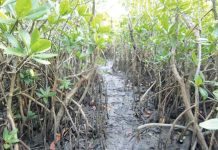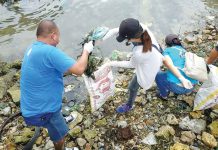
TIGBAUAN, Iloilo – Due to the declining supply of wild-caught fry and insufficiency of hatchery-bred fry from local hatcheries, the Southeast Asian Fisheries Development Center’s (Seafdec) Aquaculture Department (AQD) acquired additional 78 milkfish broodstocks to support the government “Bangus Fry Sufficiency Program.”
The recent acquisition of the milkfish broodstock will augment the more than 300 being maintained in Tigbauan main station and Igang Marine Station.
To date, the AQD has produced and dispersed 16 million hatchery-bred excluding the 380,000 fry produced in newly-built hatchery in Sagnay, Camarines Sur.
The significant decline of milkfish fry, left milkfish producers no option but to depend heavily on private and government milkfish hatcheries and to some extent imported fry from Indonesia.
Responding to this problem of scarcity of milkfish fry, Seafdec along with the Bureau of Fisheries and Aquatic Resources (BFAR) will jointly implement Republic Act 10825 enacted during the 16th Congress for the establishment of a multi-species marine hatchery in various regions of the country.
The hatchery is designed to produce 25 million milkfish fry annually. The hatchery has flexibility to allow fry production of other marine species, depending on the discretion of the LGU that will eventually take over the ownership and operation of the hatchery.
Options are also available on whether the hatchery would be operated for fry production of one species at any time or the apportioning of number of tanks for any number of species that would allow simultaneous fry production of different species.
The operation of this multi-species marine hatcheries have been integrated into the “Bangus Fry Sufficiency Program” launched by DA-BFAR early this year. The program seeks to address the country’s dependence on imported milkfish fry reducing importation by about 85%.
As part of the package, Seafdec’s AQD will conduct in-situ training in various parts in the country for its techno transfer activities. Seafdec researchers are now in Tacloban, Leyte for another in-site training until it covers nationwide. (With Seafdec/PN)







